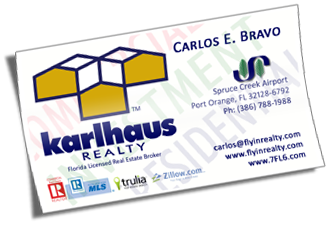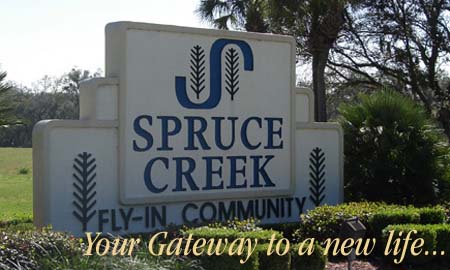A B C D E F G H I J L M
N O P Q R S T U V W Z
A
Adjoining
In actual contact with another object (i.e., attached). Same as "Contiguous".
Agent
An individual/entity who transacts, represents, or manages business for another individual/entity. Permission is provided by the individual/entity being represented.
Assignee
Individual to whom a contract is assigned.
Assignment
The manner by which a contract is transferred from one individual to another individual.
Assignor
An individual who transfers a contract to another individual.
Back to top
B
Build Out
The construction or improvements of the interior of a space, including flooring,walls, finished plumbing, electrical work, etc.
Building Permit
Written government permission to develop, renovate, or repair a building.
Back to top
C
Cancellation Clause
A provision in a contract (e.g., lease) that confers the ability of one in the lease to terminate the party's obligations. The grounds and ability to cancel are usually specified in the lease.
Capital Improvement
Any major physical development or redevelopment to a property that extends the life of the property. Examples include upgrading the elevators, replacement of the roof, and renovations of the lobby.
Certificate of Occupancy (CO)
The government issues this official form, which states that the building is legally ready to be occupied.
Chattel
Household goods, including personal property such as lamps, desks, and chairs.
Cityfeet
The preeminent real estate Internet site that provides prospective tenants with commercial space availabilities.
Common Area Maintenance (CAM)
This is the amount of additional rent charged to the tenant, in addition to the base rent, to maintain the common areas of the property shared by the tenants and from which all tenants benefit. Examples include: snow removal, outdoor lighting, parking lot sweeping, insurance, property taxes, etc. Most often, this does not include any capital improvements that are made to the property.
Contiguous
Touching at some point or along a boundary.
Contingency
A requirement in a contract that must occur before that contract can be finalized.
Contract
A legal agreement between entities that requires each to conduct (or refrain from conducting) certain activities. This document provides each party with a right that is enforceable under our judicial system.
Covenants
Wording found in deeds that limits/restricts the use to which a property may be put (e.g., no bars).
Back to top
D
Deed
A signed, written instrument that conveys title to real property.
Deed Restriction
An imposed restriction in a deed that limits the use of the property. For example, a restriction could prohibit the sale of alcoholic beverages.
Default
Failure to fulfill a promise, discharge an obligation, or perform certain acts.
Delivery
Transfer something from one entity to another.
Back to top
E
Ejectment
Action to regain possession or real property. This is a last-ditch effort that is used when there is no relationship between landlord and tenant.
Eminent Domain
The government's right to condemn and acquire property for public use. The government must provide the owner fair compensation.
Endorsement
Signing one's name on the back of a check.
Escrow
A written agreement among parties, requiring that certain property/funds be placed with a third party. The object in escrow is released to a designated entity upon completion of some specific occurrence.
Estoppel Certificate
A legal instrument executed by the one taking out the mortgage (i.e., mortgagor). The owner of a property may require an individual leasing a property to sign an estoppel certificate, which verifies the major points (e.g., base rent, lease commencement and expiration) existing lease between the landlord and tenant.
Eviction (Actual)
Physical removal of a tenant either by law or force.
Eviction (Constructive)
The landlord or his agents disturb the tenant, rendering the leased space unfit for the tenant's previous use.
Eviction (Proceeding)
A legal proceeding by the landlord to remove a tenant.
Exclusive Agency
An agreement in which one broker has exclusive rights to represent the owner or tenant. If another broker is used, both the original and actual broker are entitled to leasing commissions.
Back to top
F
Fiduciary
A person who represents another on financial/property matters.
Fixtures
Personal property so attached the land or building (e.g., improvements) it is considered part of the real property.
Back to top
G
Grace Period
Additional time allowed to complete an action (e.g., make a payment) before a default or violation occurs.
Gross Lease
A lease of property whereby the landlord (i.e., lessor) pays for all property charges usually included in ownership. These charges can include utilities, taxes, and maintenance, among others.
Back to top
H
Holdover Tenant
A tenant who remains in possession of leased property after the lease term expiration.
Back to top
I
Incompetent
An individual who is unable to handle his own affairs by reason of some medical condition (e.g., insanity, Alzheimer's).
Instrument
A written legal document created to secure the rights of the parties participating in the agreement.
Irrevocable
Incapable of being altered, changed, or recalled.
Back to top
J
Joint Tenancy
Ownership of real property by two or more individuals, each of whom has an undivided interest with the right of survivorship.
Judgement
A formal decision issued by a court relating to the specific claims and rights of the parties to an act or suit.
Back to top
L
Landlord
One who rents property to a tenant.
Lease
A contract whereby the landlord grants the tenant the right to occupy defined space for a set period at a specific price (i.e., rent).
Leasehold
The estate or interest a tenant has as stated in the tenant's lease.
Lessee
An individual (i.e., tenant) to whom property is rented under a lease.
Lessor
An individual (i.e. landlord) who rents property to a tenant via a lease.
Letter of Intent
An informal, usually non-binding, agreement among parties indicating their serious desire to move forward with negotiations.
Listing
An employment contract between principal and agent that authorizes the agent (such as a broker) to perform services for the principal and his property.
Loss Factor
What percentage of the gross area of a space is lost due to walls, elevator, etc. Rule of thumb in Manhattan is approximately 15%.
Back to top
M
Mandatory
A requirement that must be conformed to as specified in any written document.
Market Price
The actual selling or leasing price of a property.
Market Value
The expected price that a property should bring if exposed for lease in the open market for a reasonable period of time and with market savvy landlords and tenants.
Meeting of the Minds
When all individuals to a contract agree to the substance and terms of that contract.
Minor
A person under a legal age, usually under 18 years old.
Multiple Listing
An arrangement among Real Estate Board of Exchange Members, whereby each broker presents the broker's listings to the attention of the other members so that if a lease results, the commission is divided between the broker bringing the listing and the broker making the lease.
Back to top
N
Net Lease
Also called triple net lease. The lessee pays not only a fixed rental charge but also expenses on the rented property, including maintenance.
Non-Disturbance Agreement
The tenant signs this to prevent himself from being evicted if the property owner does not pay its mortgage to the bank.
Notary Public
A public officer who is authorized to witness and verify certain documents (e.g., contracts, deeds, mortgages). Also, an affidavit may be sworn before this public officer.
Back to top
O
Obligee
The person who will receive the outcome of an obligation.
Obligor
An individual who has engaged to perform an obligation to another person (i.e., obligee).
Open Listing
A listing given to any broker without liability to compensate any broker except the one who first secures a buyer who is ready, willing, and able to meet the terms of the listing, or secures the acceptance by the landlord of a satisfactory offer; the lease of the property automatically terminates the listing.
Option
A right given to purchase or lease a property upon specified terms within a specified time. If the right is not exercised, the option holder is not subject to liability for damages. If the holder of the option exercises it, the grantor of option must perform the option's requirements.
Back to top
P
Percentage Lease
A lease of property in which the rent is based upon the percentage of the sales volume made on the specific premises. There is usually a clause for a minimum rent as well.
Personal Property
Any property which is not real property. Examples include furniture, clothing, and artwork.
Power of Attorney
A written instrument duly signed and executed by an individual which authorizes an agent to act on his behalf to the extent indicated in the document.
Principal
The employer (e.g., landlord) of an agent or broker. This is the agent's or broker's client.
Back to top
Q
Quiet Enjoyment
The right of an landlord or tenant to use the property without disturbances.
Back to top
R
Real Estate Board
An organization whose members consist primarily of real estate professionals such as brokers.
Real Estate Syndicate
When partners (either with or without unlimited liability) form a partnership to participate in a real estate venture.
Real Property
Land and any capital improvements (e.g., buildings) erected on the property.
Realtor
A coined word which may only be used by an active member of a local real estate board, affiliated with the National Association of Real Estate Boards.
Rent
Compensation from tenant to landlord for the use of real estate.
Restriction
A restriction, often specified in the deed, on the use of property.
Revocation
An act of rescinding power previously authorized.
Rule of Thumb
A common or ubiquitous benchmark. For example, it is often assumed that each worker in an office will need approximately 250 square feet of space.
Back to top
S
Situs
The location of a property.
Specific Performance
When a court requires a defendant to carry out the terms of an agreement or contract.
Square Feet
The usual method by which rental space is defined. It is the area of that space, calculated by taking length times width. For example, a room 30 feet by 60 feet has an area of 1,800 square feet.
Statute
A law established by an act of a legislature.
Statute of Frauds
State law (founded on ancient English law) which requires that contracts must be reduced to written form if it is to be enforced by law.
Statute of Limitations
A law barring all right of redress after a certain period of time from the moment when a cause of action first arises.
Subagent
An agent of an individual already acting as an agent of a principal.
Subletting
The leasing of space from one tenant to another tenant.
Subscribing Witness
The witness to the execution of an instrument who has written his name as proof of seeing such execution.
Surrender
The cancellation of a lease by mutual consent of the tenant and the landlord.
Back to top
T
Tenancy at Will
A license to occupy or use lands and buildings at the will of the landlord.
Tenancy by the Entirety
An estate which exists only between husband and wife. Each has equal right of enjoyment and possession during their joint lives, and each has the right of survivorship.
Tenant Improvements
Work done on the interior of a space, can be paid for by landlord, tenant, or some combination of both, depending on the terms of the lease.
Tenancy in Common
Ownership of property by two or more individuals, each of whom has an undivided interest, without the right of survivorship.
Tenants at Sufferance
An individual who comes to possess land via lawful title and keeps it in perpetuity without any title.
Tie-in Arrangement
A contract where one transaction depends upon another transaction.
Tort
A wrongful act or violation of a legal right for which a civil action will lie.
Triple Net Lease
A lease requiring tenants to pay all utilities, insurance, taxes, and maintenance costs.
Back to top
U
Urban Property
Property in a city or a high-density area.
Back to top
V
Valid
A binding situation that is authorized and enforceable by law.
Valuation
Estimated price, value, or worth. Also, the act of identifying a property's worth via an appraisal.
Variance
Government authorization to use or develop a property in a manner which is not permitted by the applicable zoning regulations.
Violation
Act, condition, or deed that violates the permissible use of property.
Void
Something that is unenforceable.
Voidable
A situation which is capable of being unenforceable but is not so unless direct action is taken.
Back to top
W
Waiver
The intentional relinquishment or abandonment of a specific claim, privilege, or right.
Work Letter
An amount of money that a landlord agrees to spend on the construction of the interior of a space per the lease, usually negotiated.
Back to top
Z
Zone
An area, delineated by a governmental authority, which is authorized for and limited to specific uses.
Zoning Ordinance
A law by a local governmental authority (e.g., city or county) that sets the parameters for which the property may be put to use.
Back to top











 Foreclosure scams have sprung out in most areas of the country and have become most prevalent in Florida. Taking advantage of vulnerable homeowners undergoing foreclosure proceedings, these well organized scam artists come under the disguise of helping the owners keep their properties. However, the homeowners later realize that in the complex documents they signed, they have transferred the titles of their properties and have become renters in their own homes. As if that wasn't enough, soon after they get eviction notices by their "landlords". Watch the expose by CNN's reporters.
Foreclosure scams have sprung out in most areas of the country and have become most prevalent in Florida. Taking advantage of vulnerable homeowners undergoing foreclosure proceedings, these well organized scam artists come under the disguise of helping the owners keep their properties. However, the homeowners later realize that in the complex documents they signed, they have transferred the titles of their properties and have become renters in their own homes. As if that wasn't enough, soon after they get eviction notices by their "landlords". Watch the expose by CNN's reporters. Carlos is an Entrepreneur and former Fortune 500 Senior Executive with a broad background in structuring complex commercial transactions. Semi-retired at the age of 39 after founding and growing several businesses in High Technology, Manufacturing and Distribution, he has kept active as a private investor and advisor of strategy, public policy and corporate governance.
Carlos is an Entrepreneur and former Fortune 500 Senior Executive with a broad background in structuring complex commercial transactions. Semi-retired at the age of 39 after founding and growing several businesses in High Technology, Manufacturing and Distribution, he has kept active as a private investor and advisor of strategy, public policy and corporate governance. thousand condominiums in South America, considered one of the toughest markets in the world due to the lack of financing facilities.
thousand condominiums in South America, considered one of the toughest markets in the world due to the lack of financing facilities.  Aerospace Engineering (which incidentally, makes him a card-carrying real-life rocket scientist...), Applied Mathematics and Business.
Aerospace Engineering (which incidentally, makes him a card-carrying real-life rocket scientist...), Applied Mathematics and Business. 





















 Get greedy when others are fearful
Get greedy when others are fearful